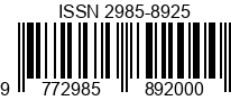Perkawinan dalam Perspektif Hukum Adat Indonesia: Ragam Sistem, Tradisi, dan Tantangan Modern
DOI:
https://doi.org/10.54298/tarunalaw.v3i02.448Keywords:
Customary Law, Traditional Marriage, Cultural Values, Kinship System, Social IdentityAbstract
Marriage in Indonesia’s customary communities is not merely a legal union between two individuals, but a socio-cultural institution imbued with symbolic meanings and noble values. Customary law, as a living legal system within society, comprehensively governs all aspects of marriage from the proposal process to the resolution of marriage dissolution. The academic concern that underpins this study lies in the limited understanding of the complexity of customary marriage systems amidst the tide of modernization and the dominance of formal legal norms, which often overlook local legal diversity. This paper employs a descriptive qualitative method with a normative-legal and sociological approach. The data are collected through literature studies exploring various sources on customary law and legal anthropology to identify and elaborate on the concepts, forms, and systems of customary marriage, engagement procedures, ceremonial stages, property arrangements, and the legal consequences of marital dissolution from a customary law perspective. The findings indicate that each customary community In Indonesia possesses distinctive characteristics in conducting marriages, reflecting their kinship systems, social structures, and deeply held cultural values. The customary marriage process serves not only as a family event but also as a vehicle for preserving collective identity and social norms. Therefore, customary law in the context of marriage remains socially relevant and holds significant potential to contribute to the development of a pluralistic and context-sensitive national legal system.
References
Agoes, Artati., (2001), Kiat Sukses Menyelenggarakan Pesta Perkawinan Adat Jawa (Gaya Surakarta dan Yogyakarta), Jakarta: Gramedia Pustaka Utama.
Anwar Nawawi, M., (2022), Hukum Perceraian Adat, Yogyakarta: Bildung.
Effendi, Djamaris., (1999), Adat Perkawinan Tradisonal di Indonesia, Jakarta: Depdikbud.
Hadikusuma, Hilman., (1990), Hukum Perkawinan Indonesia, Menurut Perundangan, Hukum Adat, Hukum Agama, Bandung: Mandar Maju.
Hadikusuma, Hilman., (2014), Pengantar Ilmu Hukum Adat Indonesia edisi revisi, Bandung: CV. Mandar Maju.
Soepomo, R. (1986), Bab-Bab Tentang Hukum Adat, Jakarta: Pradnya Paramita.
Prayudi, Ryan., (2022), Hukum Perkawinan Adat, Riau: Fakultas Hukum Universitas Pahlawan Tuanku Tambusai.
Purwadi, (2005), Upacara Tradisional Jawa, Menggali Untaian Kearifan Lokal, Yogyakarta: Pustaka Pelajar.
Riyanta, (2019), Harta Bersama Suami Isteri Menurut Hukum Adat, Hukum Perdata dan Hukum Islam, Yogyakarta: Universitas Islam Negeri Sunan Kalijaga.
Sembiring, Elsaninta dan Vanny Christina., (2014), Kedudukan Hukum Perkawinan Adat di dalam Sistem Hukum Perkawinan Nasional Menurut UU No.1 Tahun 1974, Journal of Law, Society, and Islamic Culture, Vol. 2, No. 2.
Sihotang, Amri Panahatan., (2023), Hukum Adat Indonesia, Semarang: Universitas Semarang Press.
Situmorang, (2006), Peran Hukum Adat dalam Perkawinan dan Perceraian di Indonesia, Yogyakarta: Pustaka Pelajar.
Suriyaman Mustari Pide, A., (2014), Hukum Adat Dahulu, Kini, dan Akan Datang, Jakarta: Kencana.
Soekanto, Soerjono., (1996), Meninjau Hukum Adat Indonesia Suatu Pengantar untuk Mempelajari Hukum Adat, Jakarta: PT RajaGrafindo Persada.
Soekanto, Soerjono., (1992), Intisari Hukum Keluarga, Bandung: Citra Aditya Bakti.
Ter Haar, B., (1960), Asas-Asas dan Susunan Hukum Adat, Jakarta: Pradnya Paramita.
Utomo, Laksanto., (2019), Hukum Adat, Depok: Rajawali Pers.
Wignjodipoero, Soerojo., (1984), Pengantar dan Asas-asas Hukum Adat, Jakarta: Gunung Agung.
Karnia Septia, Icha Rastika https://regional.kompas.com/read/2025/05/24/225902178/pengantin-anak-bawah-umur-di-lombok-tengah-pernah-dipisahkan-tetapi-bersatu?page=all
P, Suwardi Alamsyah., Mengenal Perkawinan Adat Lampung Papadun Buay Nuban, hlm. Juni 2020, diakses 4 mei 2025 https://kebudayaan.kemendikbud.go.id/bpnbjabar/mengenal-perkawinan-adat-lampung-pepadun-buay-nuban/
Downloads
Published
How to Cite
Issue
Section
License
Copyright (c) 2025 elvira damayanti, Divani, Daffa

This work is licensed under a Creative Commons Attribution-ShareAlike 4.0 International License.
Authors who publish with this journal agree to the following terms:
- Authors retain copyright and grant the journal right of first publication with the work simultaneously licensed under a Creative Commons Attribution-ShareAlike that allows others to share the work with an acknowledgement of the work's authorship and initial publication in this journal.
- Authors are able to enter into separate, additional contractual arrangements for the non-exclusive distribution of the journal's published version of the work (e.g., post it to an institutional repository or publish it in a book), with an acknowledgement of its initial publication in this journal.
- Authors are permitted and encouraged to post their work online (e.g., in institutional repositories or on their website) prior to and during the submission process, as it can lead to productive exchanges, as well as earlier and greater citation of published work (See The Effect of Open Access).














